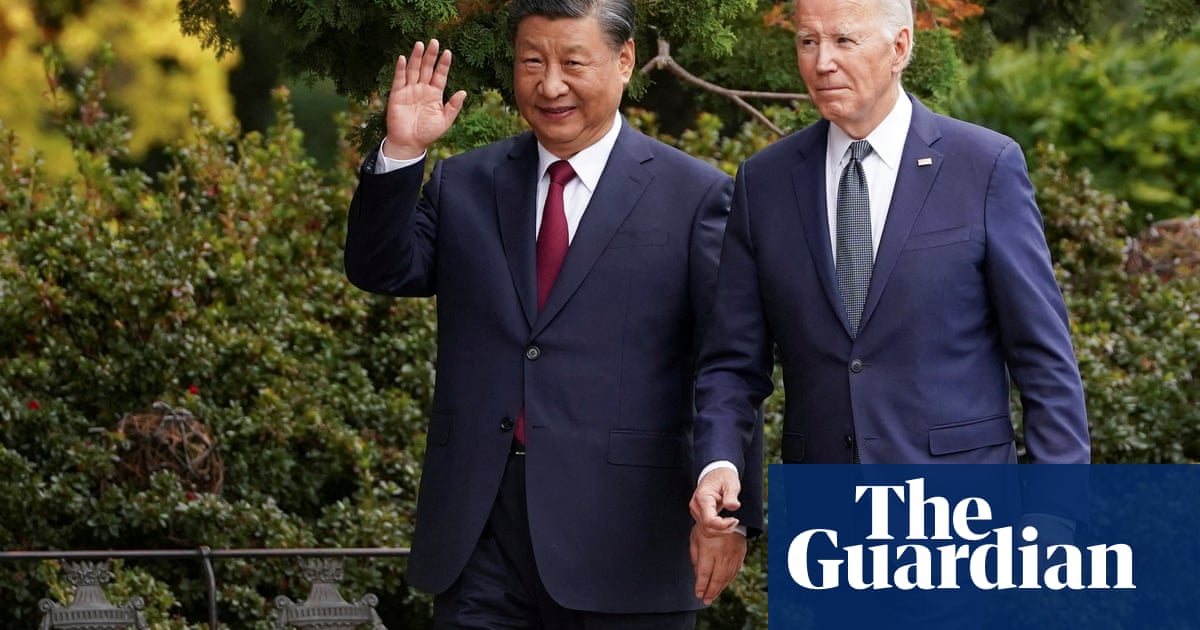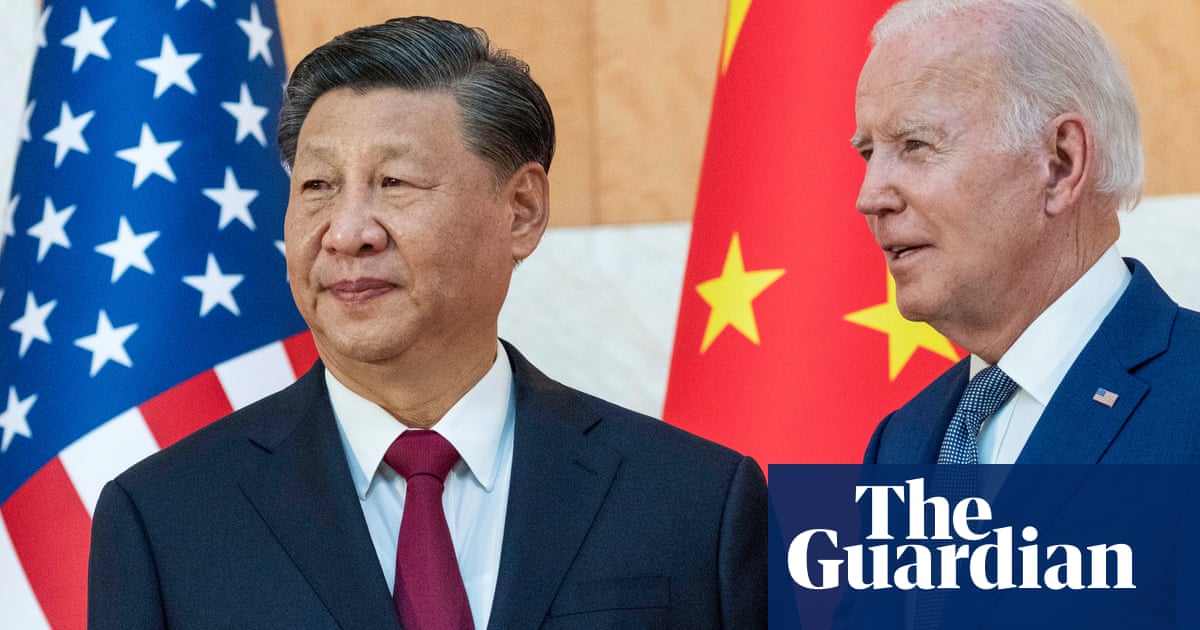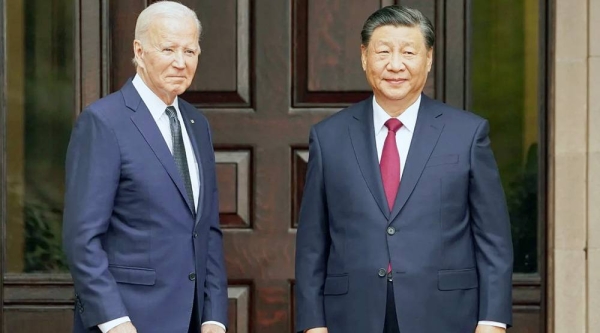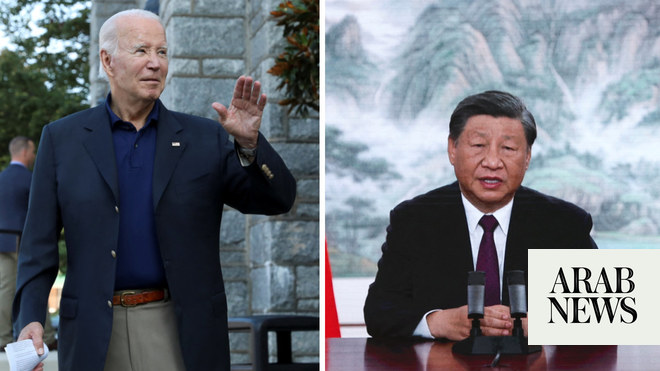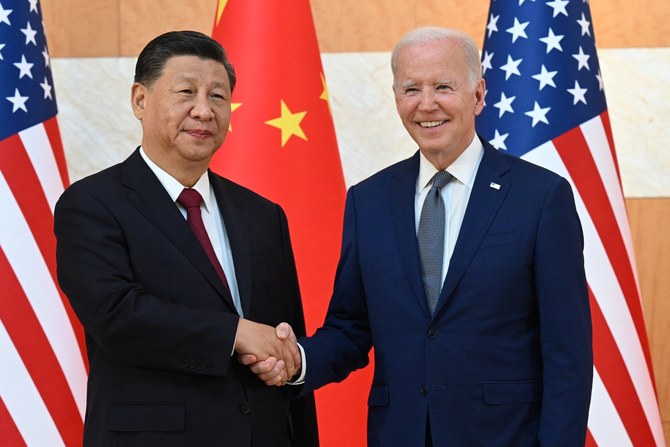
A week before Wednesday’s meeting between US President Joe Biden and Chinese leader Xi Jinping at the 30th Asia-Pacific Economic Cooperation forum summit in San Francisco, a plane left Washington for China with three special passengers aboard: the giant pandas that were loaned to the US in 2000 as a symbol of the then-budding relationship between the two countries. Their departure was seen by the American media as a reflection of the current state of the relationship between the two countries.
Will the meeting between the American and Chinese leaders succeed in stabilizing their relationship? A lot is hanging on this meeting after a very tense year, in which communication and trust plunged and tensions soared even higher than when a Chinese balloon entered American airspace and was shot down off the coast of South Carolina last year, setting off a crisis between them.
The world is watching this summit and hoping for a detente after the downward spiral of the relationship lately.
The two leaders meet at a fraught political and economic moment in the world, with reports of a slowing Chinese economy and the headwinds American policy is facing in two areas of the world. Two major conflicts, the Ukraine war and the Israel-Gaza war, are threatening US interests and stability in two of the most important regions of the world. They are expected to be prominent on the agenda.
In Ukraine, where China is Russia’s “no-limits” friend, the war has stalled with no way out, especially for the US and the wider West, which invested heavily in Ukraine in the hope of defeating Russian President Vladimir Putin and helping Kyiv regain its lost territory.
No breakthroughs are expected but measured progress can be made on some important issues
Dr. Amal Mudallali
In the Middle East, the US is facing a wave of anger over its support for Israel, while it worries about the war expanding to threaten its troops and other interests in the region. The American side points to the close relationship between China and Iran and, according to The New York Times, US officials expect Biden “to stress to Premier XI that the United States will respond to any expansion of the war caused by Iran.”
But the US focus at the summit will be on the Asia-Pacific, Taiwan and the future of Sino-American relations.
Stabilizing the relationship is the most that people are hoping for here. Experts have cautioned against high expectations. No breakthroughs are expected but measured progress can be made on some important issues, especially in the form of starting processes that can move things forward.
Council on Foreign Relations President Michael Froman told CNBC the summit “will not produce a grand bargain or resolve major issues,” but it might “make modest progress” on some issues.
US officials went to great lengths in the days before the summit to assure China that Washington does not want to “decouple” from Beijing and instead wants a “healthy and stable” relationship.
In a press briefing after her meeting with Chinese Vice Premier He Lifeng in San Francisco last week, Treasury Secretary Janet Yellen spoke about the importance of the US-China relationship, noting that “the path it takes will shape opportunities and challenges for people in both our countries and around the world.” She added that she told He that the US does not “seek to decouple our economy from China’s. This would be damaging to both the US and China and destabilizing for the world. But a healthy economic relationship requires American workers and firms to be treated fairly.”
The same message came from Secretary of Commerce Gina Raimondo in an interview with CNN. She spoke about the two countries’ desire “to stabilize the relationship” and said it is time “to ratchet down the temperature. I think the world is looking to the US and China to be responsible in managing this relationship.”
The American administration is making it clear that, while it is going to make sure its “sophisticated” technologies like semiconductors and artificial intelligence models “never get in the hands of the Chinese military,” as Raimondo said, it is keen to preserve the economic and trading relationship that the secretary said is worth $700 billion, of which 99 percent of “has nothing to do with export controls.”
Beijing accepting the start of arms control negotiations with the US is welcome news in Washington
Dr. Amal Mudallali
The Americans point to China’s new anti-espionage law and its chilling effect on US businesses’ desire to invest in China out of fear of being targeted unfairly.
But the Chinese also have their own concerns about the relationship, particularly Washington’s intentions politically on Taiwan and the South China Sea and technologically regarding its exports to China. Chinese Ambassador to the US Xie Feng was last week quoted as saying that China wanted reassurances that the “US does not seek to change China’s system, does not seek a new cold war, does not support Taiwan independence … and has no intention to seek decoupling from China.”
Despite the tensions of the last year, a breakthrough was made this month as the two countries held a rare meeting in Washington to discuss arms control and nonproliferation. The State Department described the meeting as “constructive” and said in a statement that the US “emphasized the importance of increased (Chinese) nuclear transparency and substantive engagement on practical measures to manage and reduce strategic risks across multiple domains, including nuclear and outer space.”
This meeting was very important because the arms control regime that was established by the US and Russia during the Cold War has all but crumbled, with the exception of the New START Treaty, leaving the world a more dangerous place. This month’s Russian withdrawal from the Comprehensive Nuclear Test Ban Treaty was the latest example of the dismantling of this regime.
China has always been outside this arms control structure because the two Cold War superpowers own 90 percent of the world’s nuclear arsenal, while Beijing has a small number in comparison. According to the International Campaign to Abolish Nuclear Weapons, Russia has the most confirmed nuclear weapons, with 5,997 nuclear warheads, and the US follows with 5,428. It put China’s stockpile at 410 nuclear weapons.
US National Security Adviser Jake Sullivan said in June that China was on track to have as many as 1,500 nuclear warheads by 2035 — “one of the largest peacetime nuclear buildups in history.” And he noted that China had “thus far opted not to come to the table for substantive dialogue on arms control.” Sullivan added that Washington wanted China to “compartmentalize strategic stability from broader issues in the relationship.”
This “compartmentalization” was something China objected to, but it seems something must have changed. Beijing accepting the start of strategic stability and arms control negotiations with the US is welcome news in Washington.
Biden will have to walk a thin line in San Francisco and balance two critical constituencies. With an election less than a year away, he must show his domestic audience and his allies in the Asia-Pacific that he is tough on China, while also assuring Beijing that the US is serious about stabilizing the relationship and lowering the temperature. The challenge for Biden is Congress. On many occasions, it has been Congress that has scuttled or complicated the administration’s relationship with China, either by enacting new laws or taking political stands toward Taiwan that have angered Beijing, such as last year’s visit to Taipei by former House Speaker Nancy Pelosi.
The Biden administration hopes that Wednesday’s meeting between the two leaders will steer their countries on to a more constructive path that helps them manage the competition in their relationship. The administration prioritizes communication between the US and China, especially their militaries, to ensure they avoid any miscalculations or mishaps that could lead to conflict. If the summit can result in the establishment of lines of communication and can restore trust, this could pave the way to progress on all major geopolitical issues and assure businesses that their investments in the future of the relationship are safe.
Dr. Amal Mudallali is a consultant on global issues. She is a former Lebanese ambassador to the UN.




